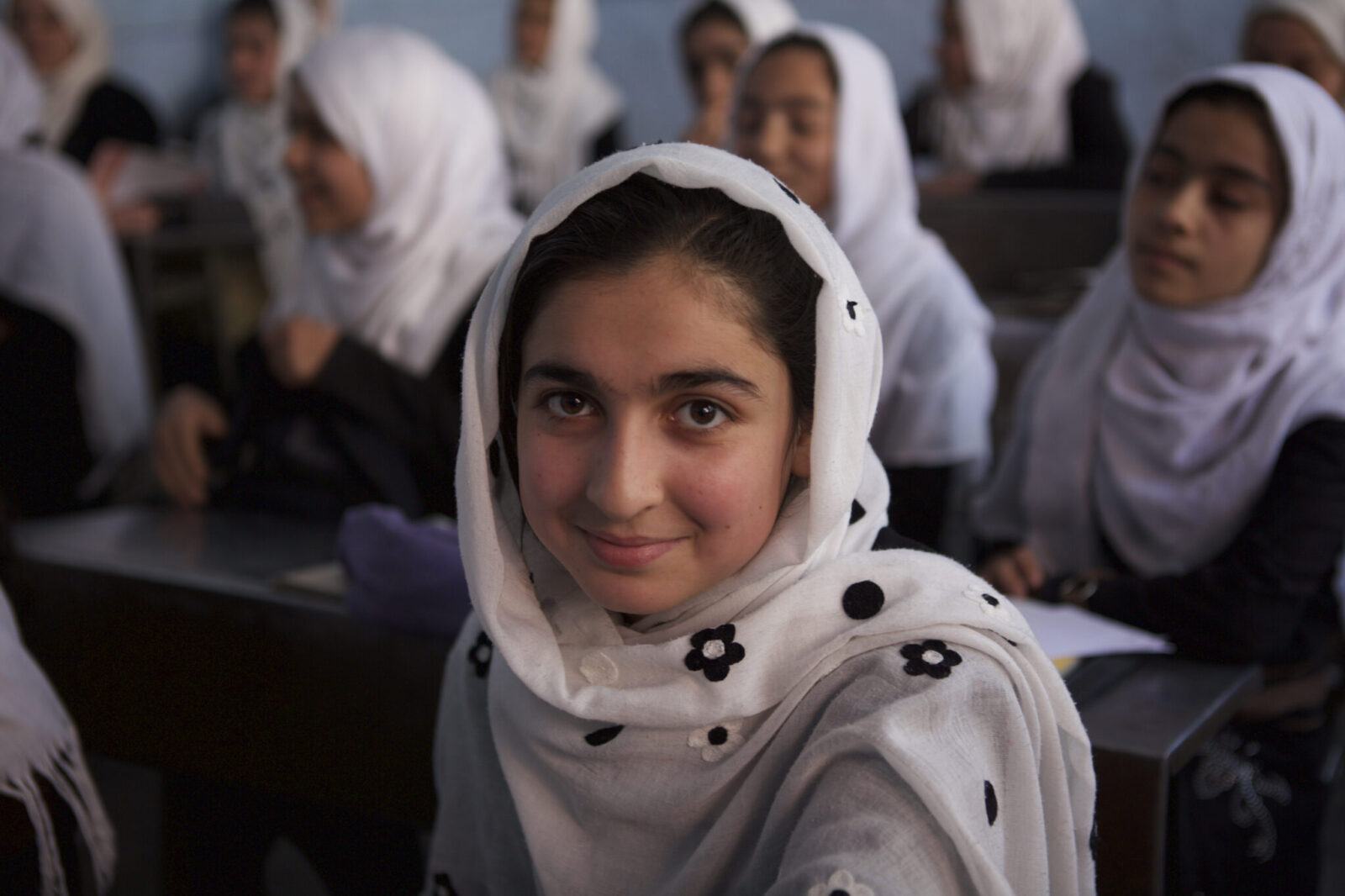Evaluating peer-to-peer mentorship and human capital development among adolescent girls in Afghanistan

UNFPA | An Afghan school girl looks on as she attends her classroom at Gawharshad high school in Herat on October 15, 2016.
Study Context
Afghanistan has had one of the lowest education outcomes in the world and, despite some progress (UNESCO, 2015), the country continues to lag behind the rest of the world in primary and secondary education.
The withdrawal of the United States Armed Forces from Afghanistan in 2021 was almost immediately followed by the collapse of the Afghan government, seizure of control by the Taliban, and the closure of secondary schools for girls.
Before the regime change, this project evaluated the effectiveness of peer-to-peer mentorship for improving the academic performance and mental health of female students in grades 6 and 8 (ages 12-15) in Afghanistan. Additionally, the research team studied the mechanisms through which peer-to-peer mentorship can achieve positive outcomes and how mentorship programs can be designed most effectively.
Study Design
The primary objective of this data collection effort was to evaluate the potential of a peer-to-peer mentorship that had been introduced into 300 government schools to improve educational and mental health outcomes for girls enrolled in school. Data was collected from 1,506 female students (378 mentor-type students and 1,128 mentee-type students) enrolled in grades seven and eight in 81 government schools across nine provinces in Afghanistan. In addition, data was collected from the female and male household heads of 397 of these students.
Through interviews with students, households, and resource teachers in government schools that both had and had not been randomly assigned to receive the BRAC Education mentorship intervention, the research team aimed to better understand how educational outcomes can be improved in the face of budget shortages and human capital constraints.
Results and Policy Lessons
Since girls’ schools never reopened in Afghanistan after COVID, the study has been paused. Nevertheless, baseline data suggest that gaps in girls’ education now may have serious implications for girls education in future generations, even if schools eventually reopen. The data also suggest that the peer-to-peer mentorship program shows promise in boosting girls’ learning outcomes, which may be a useful method for closing learning gaps once girls’ schools open, or if opportunities for learning in groups become possible.

